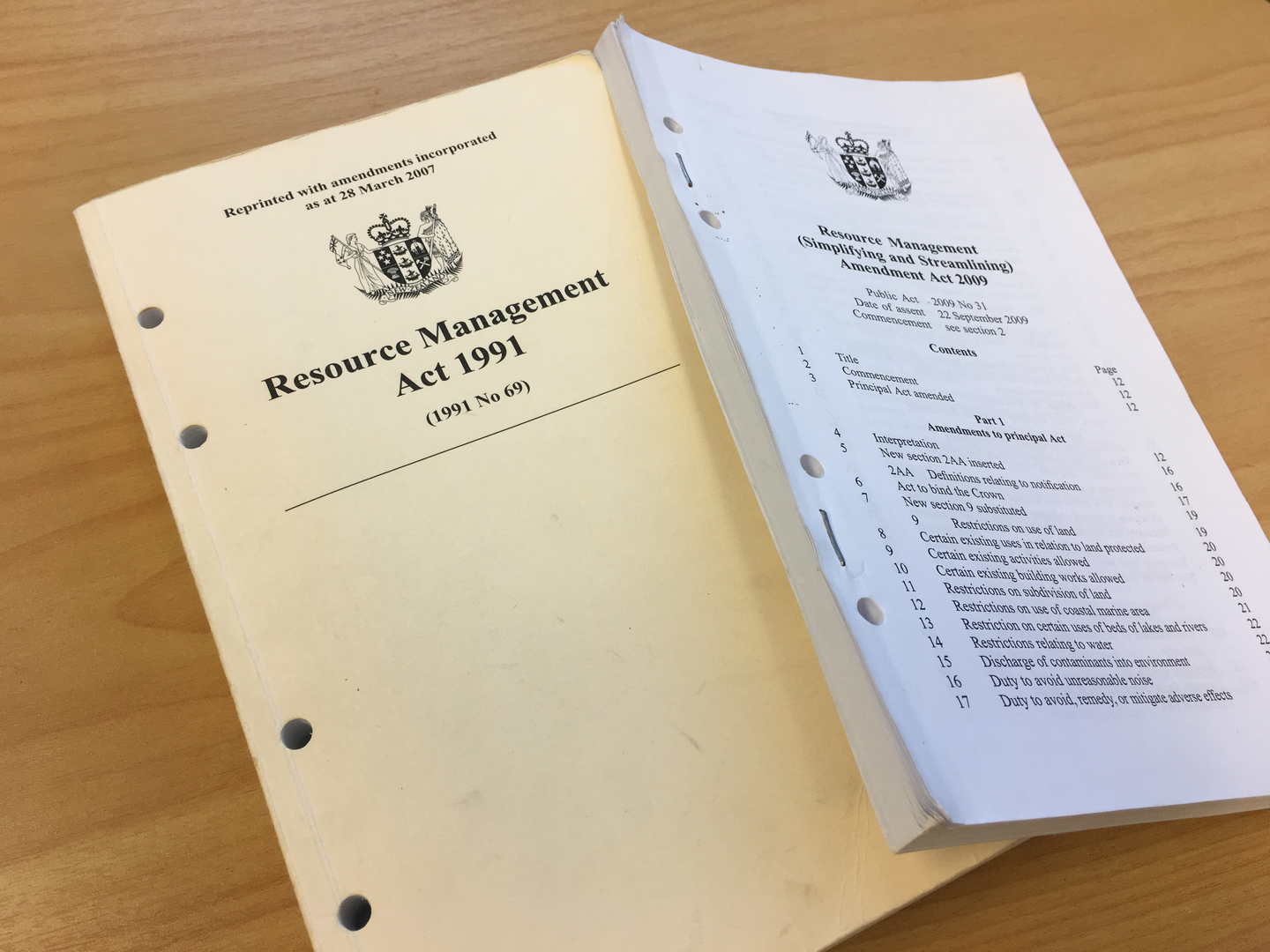In a bid to kick-start the economy, a number of projects will effectively bypass the Resource Management Act once legislation passes this month, which has planners and experts worried

Minister for the Environment David Parker announced that Cabinet has approved the fast tracking of consent processes and the legislation is expected to be passed this month. The Minister will identify projects to go into the fast track resource consenting process and these will be considered by an Expert Consenting Panel chaired by a current or retired Environment Court Judge or senior lawyer.
This fast tracking is part of the Government’s approach to getting key infrastructure and development projects underway during the COVID-19 recovery phase.
Cautiously optimistic
The New Zealand Planning Institute (NZPI) cautiously welcomes the Government’s announcement of fast-tracked consenting for eligible development and infrastructure projects, but says it is important that environmental and community outcomes are not sacrificed in the process.
NZPI Treasurer Jonathan Clease says, “While we are generally supportive of the need to get things moving, it’s also important that we ensure the RMA’s safeguards are not completely overlooked and that we preserve transparency of decision making.
“Fast tracking must not become rubber stamping and there should still be some provision for community input so that people understand these projects and what is happening through fast tracking. This is especially important if we are to have robust decisions that will stand up to possible scrutiny in any resulting legal appeals.”
NZPI Chair Karyn Sinclair says while the planning industry supports the Government’s efforts to stimulate the economy, care needs to be taken to ensure projects still benefit the public and protect environmental bottom lines.
“NZPI is well aware of the need to ensure that the economy can regain traction as widely and as quickly as possible to minimise the continued pain that is being felt throughout New Zealand,” says Karyn.
“We want to ensure that the economic reboot occurs in a manner that respects the environment and offers lasting positive outcomes for our communities. Our goal is to enable employment generating projects, while retaining checks and balances around environment and community outcomes. It would be inappropriate to prioritise short term jobs over enduring positive community outcomes.
“The composition of the new fast track decision making panels will be very important. Members will need expertise in decision making as well as project implementation. The need to fast track cannot be allowed to override community concerns.”
Lessons from Christchurch
“The government’s announcement that it intends to bar public input into RMA decisions around major recovery projects reflects a common response, in times of emergency, to reduce “red tape” in the name of efficiency,” says Dr John Hopkins, a Professor of Law at the University of Canterbury specialising in law and disasters.
“However, such administrative rules exist for a reason and the check they provide on the discretion of decision makers is as important in times of disaster as in more normal times.
“Although disasters can feel immediate, recovery from them is a long term process as any visitor to Christchurch can confirm. The impact of the projects that that government wishes to fund as a means of driving a post-COVID-19 recovery will be with us for generations to come. Although it is desirable that decisions are taken within shorter time frames, they must be taken with these long term consequences in mind. Administrative rules, of which the RMA is but one example, exist to ensure that they are.
“While most agree that the legalistic procedures of the RMA need reform, their purpose remains crucial, particularly in a system that is already heavily biased towards development. The government’s well intentioned drive to reduce bureaucracy thus needs to retain the principles behind it, particularly the wider community’s chance for input. Such input not only ensures better decisions, it ensures more acceptable ones. Throwing out the public’s chance to comment and leaving decisions with a government appointed panel is like throwing out the baby and leaving the bathwater. As the Christchurch recovery shows, if we get these decisions wrong, we will have plenty of time to regret our folly.”
Risks to the environment
Dr Pip Wallace of the University of Waikato’s Environmental Planning Programme has concerns that the natural environment will be the loser as a result of the fast-track reforms.
“The constraints on public participation will undoubtedly produce less defence of the environment, as well as less robust debate,” she says.
“I accept that there are strong reasons to get the economy moving, but not at the expense of the New Zealand natural environment.
“The latest RMA monitoring survey demonstrates that almost all resource consents are granted. For instance in 2018/19, 35,434 applications were approved and only 105 consents applications were declined. Notification rates are miniscule: 4% of resource consent applications are notified and only 1.5% go to hearing.
“For those that do go to hearing, the presence of environmental defenders (including iwi who are strongly numbered in this group) are critical to outcomes. The fast track legislation limits this valuable contribution, but in addition it appears it may also lead to predetermination of issues. The Minister for the Environment has said once a project is referred to the Expert Consenting Panel there is a high level of certainty the resource consent will be granted. The Expert Panel is intended to be representative, partially offsetting the loss of public participation. However, it does not appear that the process will enable the Panel to exercise a free hand. What is the point of being representative?”
Learning from the past
Associate Professor Caroline Miller of Massey University’s Resource and Environmental Planning Programme adds that we must stop and think what we can learn from history.
She says, “we have after all been here before. The National Development Act 1979 was used to consent the Muldoon government’s Think Big Projects, by offering a tailored and limited consent process. Some projects produced long term benefits, but others were less successful in producing jobs because picking winners is always chancy. Now there is a presumption that economically worthy projects creating replacement jobs will come from projects that require extensive resource consents. That signals that most will be large scale transformative projects which will require more than shovels to achieve them.
“In the rush to create new jobs from large-scale projects, we are in danger of losing sight of the ever expanding consequences of climate change and environmental degradation highlighted in the last State of the Environment Report. This may be our best and only chance of getting our government to undertake expensive and extensive projects that address climate and environmental issues. In the future, we may rue the lost opportunities of this unique time in our economic history, because we used old thinking to address the present and future issues.
“As a planner, I am also concerned at the proposed process that is being proposed which is underlain by the expectations that the expert panel is there to grant a consent. The public’s input is clearly seen as vexatious or displaying NIMBIYist tendencies in trying to delay worthy projects. The effective removal of these voices leaves the expert panel with the challenging role of not only assessing the impact of the proposal on the natural and physical environment but also determining community impact. Most submissions come from affected residents, residents who have to live with the changes brought about by the proposal. The environment, often a silent part of the consent system, will have to rely on the panel’s experts to represent its concerns. The positive value of submissions in shaping better outcomes will be lost.
“There is also the issue of how this expert panel will be appointed. It seems likely they will be drawn from the ranks of the RMA accredited commissioners. They are already prominent in the RMA consenting system, which is now judged to be deficient. It has been suggested there may be room for limited submission from groups representing the environment which again seems to set up a system of picking the voices to be heard while excluding community voices.
“These concerns are strengthened by the clamour to make these temporary changes permanent, which may become a seductive pathway as the global economy trends downward.”




